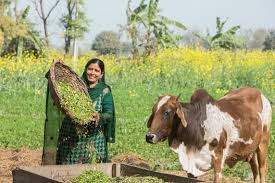
Fazal Rehman
In the realm of global trade, small and medium enterprises (SMEs) often encounter formidable hurdles on their journey to establish a foothold in international markets. Recent progress in Pakistan clearly demonstrates how connecting markets can greatly boost SMEs, leading to lasting success and prosperity.
The 4th Pakistan-Africa Trade Development Conference (PATDC) & Pakistan Single Country Exhibition (PSCE), held in Cairo, emerged as a pivotal juncture for Pakistani SMEs, particularly those hailing from Sindh and Balochistan. Supported by the Trade Development Authority of Pakistan (TDAP) and the International Trade Centre’s (ITC) Growth for Rural Advancement and Sustainable Progress (GRASP) program funded by the European Union, this landmark event served as a catalyst for dynamic exchanges among policymakers, industry stalwarts, and visionary entrepreneurs, thereby nurturing deeper economic ties within the Middle East and North African (MENA) region.
Pakistan’s export potential shines bright amid global economic changes. With diverse industries like textiles, agriculture, pharmaceuticals, and IT, the country offers a wealth of products for global markets. Recent efforts like the Pakistan-Africa Trade Development Conference and the Food and Agriculture Exhibition highlight Pakistan’s dedication to expanding exports. Despite challenges, including infrastructure and regulations, Pakistan’s export scene is evolving with innovation and partnerships. As the nation explores new markets, economic prosperity, and global engagement loom on the horizon.
Market connections are crucial for Pakistan’s agriculture and horticulture sectors, providing entrepreneurs with opportunities for wider economic growth and stronger livelihoods. These connections offer more than just transactions; they open doors to profitable markets, reduced losses after harvest, and increased profitability. Given that agriculture contributes about 24% to Pakistan’s GDP and employs nearly half of its workforce, strong market links are essential. Recent figures highlight this importance: the Food and Agriculture Exhibition in Karachi generated deals surpassing US$ 3.5 million (For GRASP supported SMEs), demonstrating the significant economic impact of effective market connections. These links not only enhance export possibilities but also facilitate the exchange of technology, knowledge, and value addition. Strengthening market ties for Pakistan’s agriculture and horticulture entrepreneurs holds the promise of boosting both local and international trade, driving economic growth, and fostering sustainable development.
The GRASP project, funded by the European Union and executed by ITC, stands as a testament to the transformative clout of international partnerships in propelling trade growth and empowerment. By furnishing targeted support to SMEs and facilitating market linkages, GRASP exemplifies the potency of collaborative endeavors in unlocking the full potential of SMEs and nurturing sustainable trade growth.By championing the cause of market linkages, Pakistan paves the way for its agri entrepreneurs to thrive, thereby charting a course towards a vibrant and resilient economy.
The GRASP project, funded by the European Union and managed by ITC, showcases the power of international partnerships in boosting trade and empowerment. By offering targeted assistance to SMEs and aiding in market connections, GRASP illustrates the effectiveness of collaborative efforts in unleashing SMEs’ full potential and fostering sustainable trade growth. Through its focus on improving market linkages and enhancing value chains across 8 products in 22 districts of Sindh and Balochistan, GRASP is empowering SMEs to thrive. Pakistan’s commitment to championing market connections sets the stage for agricultural entrepreneurs to flourish, paving the way for a vibrant and resilient economy.





